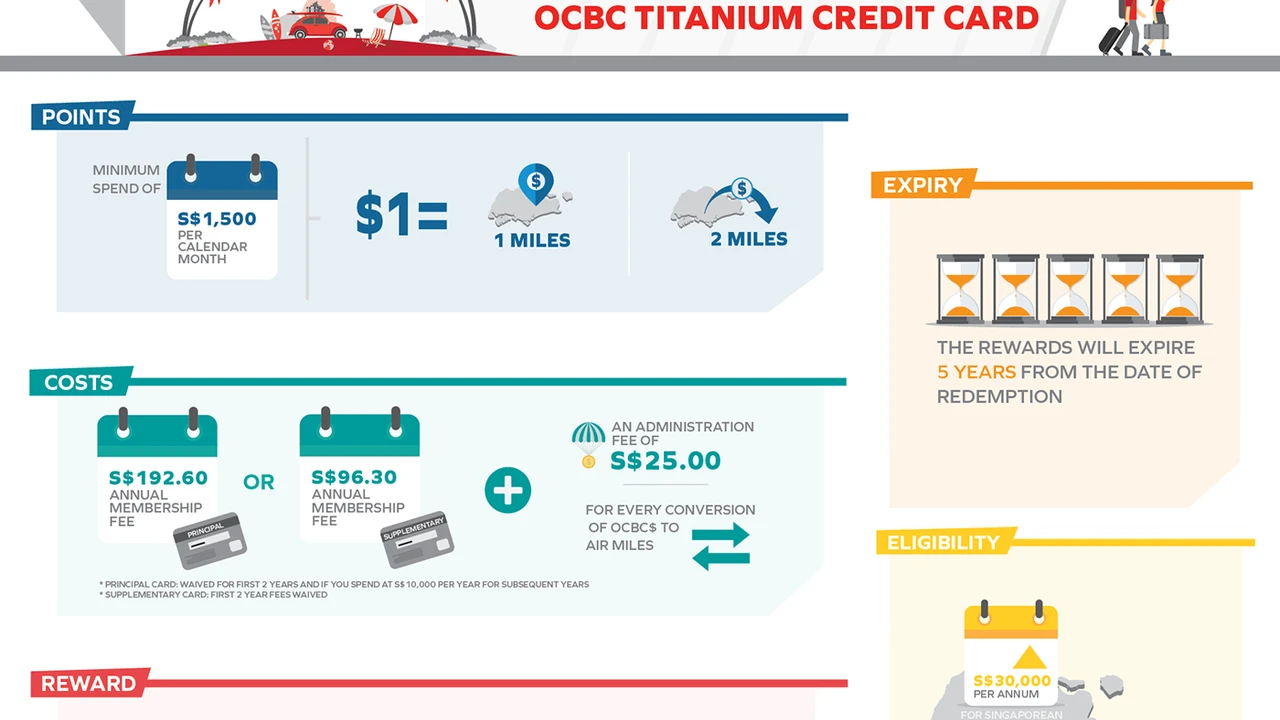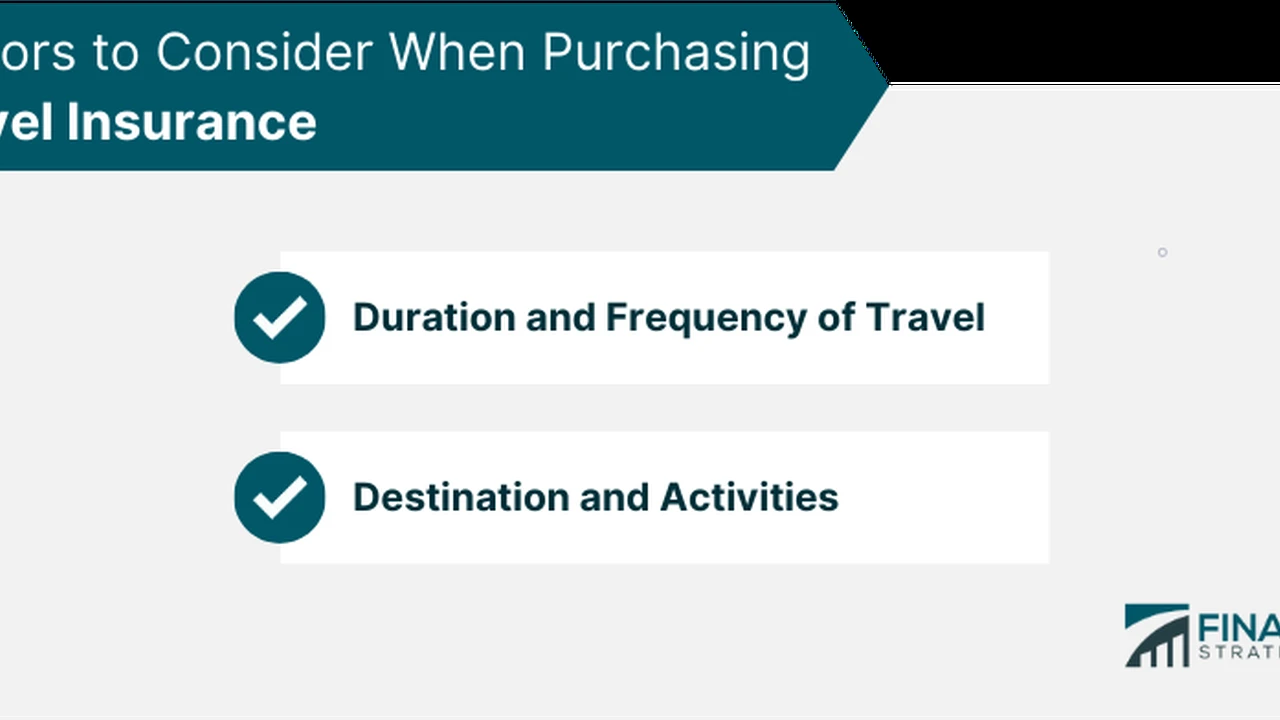Travel Policy and Credit Card Usage
Best practices for integrating corporate credit card usage into your travel policy for better expense tracking and control.

Travel Policy and Credit Card Usage Streamlining Expenses
The Crucial Role of Corporate Credit Cards in Travel Policies
Alright, let's talk about corporate credit cards and how they fit into your travel policy. For any business, especially those with employees frequently on the go, managing travel expenses can be a real headache. It's not just about the money spent; it's about tracking, reconciliation, compliance, and making sure everyone's on the same page. That's where corporate credit cards come in. They're not just a payment method; they're a powerful tool for expense tracking, control, and streamlining your entire travel management process. Think about it: instead of employees fronting their own cash and waiting for reimbursements, or dealing with a messy pile of personal receipts, a corporate card centralizes everything. This isn't just convenient; it's a game-changer for financial visibility and policy enforcement.
When you integrate corporate credit card usage effectively into your travel policy, you're essentially building a robust system that benefits everyone. Employees get a hassle-free way to pay for business-related expenses, reducing their personal financial burden and improving their travel experience. For the company, it means better control over spending, real-time data on expenditures, simplified reconciliation, and a clearer audit trail. Plus, it significantly reduces the administrative burden on your finance team. No more chasing down missing receipts or deciphering handwritten expense reports. It's about creating a seamless, efficient, and transparent system that supports both your travelers and your bottom line.
Benefits of Corporate Credit Cards for Travel Expense Management
So, why should you bother with corporate credit cards? The benefits are pretty compelling, especially when you're looking to optimize your travel policy and expense management. Let's break down some of the key advantages:
Enhanced Expense Tracking and Visibility for Travel Spending
This is probably the biggest win. With corporate cards, every transaction is automatically recorded. This means you get a clear, digital trail of all travel-related spending. You can see exactly where money is being spent, by whom, and when. This level of visibility is crucial for budgeting, forecasting, and identifying areas where you might be overspending or where policy compliance is an issue. Instead of waiting for expense reports to trickle in weeks after a trip, you get near real-time data, allowing for proactive management rather than reactive damage control.
Improved Policy Compliance and Enforcement with Card Controls
Corporate cards aren't just for spending; they're for controlling spending. Many corporate card programs allow you to set spending limits, restrict certain merchant categories (e.g., no personal shopping), and even block transactions that fall outside your travel policy. Imagine a policy that says 'economy class only' for flights. While a card can't enforce that directly, it can be linked to booking tools that do, and the data from the card can quickly flag any non-compliant spending. This built-in control mechanism makes it much easier to enforce your travel policy and reduce rogue spending. It's like having a silent auditor for every transaction.
Streamlined Reconciliation and Reporting for Finance Teams
For your finance department, corporate cards are a godsend. Instead of manually processing individual expense reports, they can reconcile transactions directly from the card statements. Many corporate card providers offer integration with accounting software, further automating the process. This drastically cuts down on manual data entry, reduces errors, and frees up your finance team to focus on more strategic tasks. Reporting also becomes much simpler and more accurate, providing valuable insights into your travel spend patterns.
Reduced Employee Out-of-Pocket Expenses and Reimbursement Delays
From the employee's perspective, not having to use personal funds for business travel is a huge relief. It eliminates the financial burden and the stress of waiting for reimbursements. This improves employee satisfaction and morale. When employees know they won't be out of pocket, they can focus on their work, not on their personal finances. Faster reimbursements (or no reimbursements needed at all for card-paid expenses) also mean happier employees.
Access to Detailed Data and Analytics for Travel Optimization
The data collected through corporate card usage is incredibly valuable. You can analyze spending by department, by project, by traveler, by vendor, and much more. This data can help you identify preferred vendors, negotiate better rates, optimize travel routes, and refine your travel policy over time. It moves you from guesswork to data-driven decision-making, leading to more efficient and cost-effective travel programs.
Key Considerations When Integrating Corporate Cards into Your Travel Policy
Okay, so you're convinced corporate cards are the way to go. But simply handing them out isn't enough. You need a clear, well-defined strategy for integrating them into your travel policy. Here are some critical considerations:
Defining Card Usage Guidelines and Permitted Expenses
This is foundational. Your travel policy must explicitly state what corporate cards can and cannot be used for. Be super clear. Is it just for flights and hotels? Can it be used for meals? What about client entertainment? Personal expenses are a definite no-go, but make sure that's clearly communicated. Provide examples of permitted and non-permitted expenses. The more specific you are, the less room there is for misinterpretation.
Setting Spending Limits and Approval Workflows for Card Transactions
Implement clear spending limits based on employee roles, trip duration, or destination. For example, a junior employee might have a lower daily meal allowance than a senior executive. Also, define approval workflows for larger transactions or exceptions. Will managers need to pre-approve certain expenses? How will out-of-policy spending be handled? Many corporate card programs allow you to set these limits and trigger alerts or even decline transactions automatically.
Establishing Clear Reconciliation and Reporting Procedures for Cardholders
Even with corporate cards, employees still have a role in the expense reporting process. They need to understand how to submit receipts, categorize expenses, and reconcile their card statements. Provide clear instructions on deadlines for submitting expense reports, what documentation is required (e.g., itemized receipts for meals), and how to handle discrepancies. The easier you make this process, the higher your compliance rates will be.
Addressing Personal Use and Misuse of Corporate Cards
This is a big one. Your policy must have a strict stance on personal use of corporate cards. Clearly state the consequences of misuse, which could range from disciplinary action to immediate termination. Implement robust monitoring systems to detect suspicious activity. Education is key here; ensure employees understand that the card is for business purposes only and that any personal charges will be flagged and must be immediately repaid.
Choosing the Right Corporate Card Program and Provider
Not all corporate card programs are created equal. You need to select a provider that aligns with your business needs, size, and travel patterns. Consider factors like integration capabilities with your existing expense management software, reporting features, fraud protection, customer service, and any rewards programs. We'll dive into some specific providers shortly.
Training Employees on Corporate Card Policies and Best Practices
Don't just hand out cards and expect everyone to know the rules. Provide comprehensive training to all cardholders. This should cover the policy guidelines, how to use the card, how to submit expenses, what to do in case of a lost or stolen card, and who to contact for support. Regular refreshers are also a good idea, especially as your policy evolves.
Top Corporate Credit Card Providers and Their Features for Travel
Alright, let's get into some specifics. When it comes to corporate credit cards, there are several major players, each with their own strengths. The 'best' one for you will depend on your company's size, travel volume, and specific needs. Here are a few prominent ones, along with their typical features relevant to travel policies:
American Express Corporate Cards for Business Travel
American Express is a giant in the corporate card space, known for its robust reporting and premium benefits. They offer various tiers of corporate cards, from basic to executive-level, often with different spending limits and perks. Their platform, GlobalSpend, provides detailed transaction data, analytics, and integration capabilities. Amex cards often come with travel insurance, lounge access, and concierge services, which can be a big plus for frequent travelers. They also have strong fraud protection. However, their acceptance can sometimes be an issue in smaller international markets compared to Visa or Mastercard, and their fees might be higher.
- Key Features: Detailed reporting, integration with expense management systems, travel insurance, lounge access (on premium cards), global support, strong fraud protection.
- Use Case: Larger enterprises, companies with frequent international travelers, those valuing premium travel benefits and robust data.
- Typical Cost: Annual fees per card can range from $0 to several hundred dollars, depending on the program and benefits. Transaction fees are generally absorbed by the merchant.
Visa Commercial Cards for Global Travel Expense Management
Visa is globally accepted, making their commercial cards an excellent choice for companies with extensive international travel. They partner with various banks to issue their cards, so the specific features and benefits can vary widely depending on the issuing bank. However, the underlying Visa network provides broad acceptance and robust security features. Many Visa commercial card programs offer expense management platforms, data analytics, and integration with accounting software. They are generally very flexible and can be tailored to different business sizes.
- Key Features: Wide global acceptance, flexible programs through various issuing banks, strong security, often integrated with bank-provided expense tools.
- Use Case: Businesses of all sizes, especially those with significant international travel, looking for broad acceptance and customizable programs.
- Typical Cost: Varies significantly by issuing bank. Annual fees can be low or non-existent, with revenue generated through interchange fees.
Mastercard Corporate Cards for Flexible Travel Spending
Similar to Visa, Mastercard offers extensive global acceptance and partners with numerous banks to issue corporate cards. Their programs are highly customizable, allowing businesses to set specific spending controls, limits, and reporting requirements. Mastercard's Smart Data platform provides comprehensive transaction data and analytics, helping companies gain insights into their spending. They also offer various levels of travel benefits, insurance, and security features. Mastercard is a strong contender for businesses seeking flexibility and global reach.
- Key Features: Extensive global acceptance, customizable spending controls, detailed data reporting (Smart Data), various travel benefits and insurance.
- Use Case: Companies seeking a balance of global acceptance, flexibility, and robust data insights.
- Typical Cost: Varies by issuing bank, similar to Visa.
Brex Corporate Cards for Startups and Tech Companies
Brex has gained significant traction, particularly among startups and tech companies, by offering corporate cards that don't require personal guarantees and are often tied to a company's cash balance rather than traditional credit scores. They offer a modern, user-friendly platform with automated expense management, receipt capture, and integrations with popular accounting software. Brex also provides attractive rewards programs tailored to business spending, like discounts on software and travel. Their focus is on speed, automation, and a seamless user experience.
- Key Features: No personal guarantee, credit limits based on cash balance, automated expense management, receipt capture, strong integrations, tailored rewards.
- Use Case: Startups, tech companies, and businesses looking for modern, automated expense solutions and flexible credit terms.
- Typical Cost: Generally no annual fees. Revenue generated through interchange fees and premium features.
Ramp Corporate Cards for Spend Management and Automation
Ramp is another strong contender in the modern spend management space, emphasizing automation and cost savings. They offer corporate cards with built-in expense management, automated receipt matching, and real-time insights into spending. Ramp's platform is designed to help businesses identify wasteful spending and enforce policies proactively. They also offer virtual cards for specific vendors or one-time purchases, adding an extra layer of control. Ramp prides itself on its ability to help companies save money through intelligent spend analysis and automation.
- Key Features: Automated expense management, real-time spend insights, virtual cards, spend analysis to identify savings, no annual fees.
- Use Case: Companies focused on maximizing cost savings, automating expense processes, and gaining deep insights into spending patterns.
- Typical Cost: No annual fees. Revenue generated through interchange fees.
Implementing Corporate Card Programs Best Practices and Pitfalls to Avoid
So, you've picked your provider and you're ready to roll. But successful implementation isn't just about the card itself. It's about how you roll it out and manage it. Here are some best practices and common pitfalls to steer clear of:
Best Practices for Successful Corporate Card Integration
1. Clear and Concise Policy Communication: Don't just send an email. Hold training sessions, create an easily accessible FAQ document, and ensure every cardholder signs an acknowledgment of the policy. Clarity prevents confusion and misuse.
2. Robust Expense Management Software Integration: Your corporate card program should ideally integrate seamlessly with your expense management software (e.g., SAP Concur, Expensify, Rydoo). This automates data flow, simplifies reconciliation, and improves reporting. If your card provider offers their own expense tool, evaluate its capabilities thoroughly.
3. Regular Audits and Reviews: Don't set it and forget it. Periodically audit card usage to ensure compliance. Look for unusual spending patterns, missing receipts, or frequent policy violations. Use the data from your card program to identify trends and areas for improvement.
4. Employee Training and Ongoing Support: As mentioned, training is crucial. But also ensure there's a clear point of contact for employees if they have questions or issues with their card. Prompt support can prevent frustration and ensure compliance.
5. Leverage Data for Policy Refinement: Use the rich data provided by your corporate card program to continuously refine your travel policy. Are certain expense categories consistently over budget? Are employees struggling with a particular policy rule? Data can help you make informed adjustments.
6. Implement Virtual Cards for Specific Use Cases: For online bookings, one-off purchases, or specific vendor payments, consider using virtual cards. These can have very specific spending limits and expiry dates, adding an extra layer of security and control.
Common Pitfalls to Avoid in Corporate Card Programs
1. Lack of Clear Policy: The biggest mistake. If your policy is vague, employees will interpret it their own way, leading to non-compliance and headaches. Be explicit about what's allowed and what's not.
2. Insufficient Training: Assuming employees will figure it out is a recipe for disaster. Invest time in proper training to ensure everyone understands their responsibilities and the system.
3. Poor Integration with Expense Systems: If your card data doesn't flow smoothly into your expense management system, you're losing out on the biggest benefit: automation. This can lead to manual workarounds and errors.
4. Ignoring Data and Analytics: Having all that rich spending data but not using it is a missed opportunity. Analyze it regularly to identify trends, enforce policies, and find cost-saving opportunities.
5. Inconsistent Enforcement: If policy violations are not addressed consistently, employees will quickly learn that the rules aren't strictly enforced, leading to widespread non-compliance. Be fair but firm.
6. Overly Restrictive Policies: While control is good, an overly restrictive policy can frustrate employees and hinder their ability to do their job effectively. Find a balance between control and flexibility.
7. Not Reviewing the Program Periodically: The business landscape changes, and so do travel patterns. Your corporate card program and associated policies should be reviewed and updated regularly to remain relevant and effective.
Future Trends in Corporate Credit Card and Travel Expense Management
The world of corporate finance and travel is always evolving, and corporate credit cards are no exception. Here's a peek at what's on the horizon:
AI and Machine Learning for Automated Expense Categorization and Fraud Detection
Expect more sophisticated AI and machine learning to play a bigger role. This means even smarter automated expense categorization, reducing the need for manual input. AI will also get better at detecting anomalies and potential fraud in real-time, flagging suspicious transactions before they become a problem. Imagine a system that learns your company's spending patterns and immediately alerts you to anything out of the ordinary.
Increased Use of Virtual Cards and Single-Use Cards for Enhanced Security
Virtual cards are already here, but their use will become even more widespread. They offer unparalleled security by allowing you to generate unique card numbers for specific transactions or vendors, minimizing the risk of data breaches. Single-use cards for one-off purchases will also become more common, providing granular control over spending.
Real-Time Spend Visibility and Policy Enforcement
The goal is real-time. We're moving towards a world where you can see exactly what's being spent, as it's being spent. This real-time data will enable instant policy enforcement, with transactions being approved or declined based on predefined rules, rather than waiting for post-trip reconciliation. This proactive approach will significantly improve compliance.
Deeper Integration with Travel Booking Platforms and ERP Systems
Expect even tighter integrations between corporate card programs, online travel booking tools, and enterprise resource planning (ERP) systems. This will create a truly end-to-end travel and expense management ecosystem, where bookings, payments, and accounting are all seamlessly connected, reducing manual effort and improving data accuracy.
Personalization of Corporate Card Benefits and Rewards
Just like personal credit cards, corporate cards might start offering more personalized benefits and rewards based on individual traveler preferences or company spending habits. This could include tailored travel perks, discounts on specific services, or rewards programs that align with company values (e.g., sustainability-focused rewards).
Focus on Sustainability and ESG Reporting through Card Data
As companies increasingly focus on Environmental, Social, and Governance (ESG) goals, corporate card data will become a valuable source for tracking and reporting on sustainable travel practices. This could include identifying carbon footprints associated with travel, favoring eco-friendly vendors, and reporting on diversity in supplier spending.
So, there you have it. Corporate credit cards are far more than just plastic. When integrated thoughtfully into your travel policy, they become a cornerstone of efficient, compliant, and cost-effective travel management. It's about leveraging technology and smart processes to make business travel smoother for everyone involved.
:max_bytes(150000):strip_icc()/277019-baked-pork-chops-with-cream-of-mushroom-soup-DDMFS-beauty-4x3-BG-7505-5762b731cf30447d9cbbbbbf387beafa.jpg)






